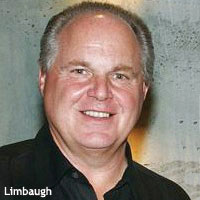
Rush Limbaugh's radio show on which he labeled Georgetown University law student Sandra Fluke things like “slut” and
“prostitute,” and suggested that women who demand contraception should find their way into the pornography business may be something of a sideshow, but it's a sponsor-supported one.
It is also a Petri dish for how the fragmentation of media and the advent of consumer-generated and social platforms have created an environment that makes outrageous statements currency for buzz
and for energizing factions. And if the decision of Sen. Olympia Snowe, R-Maine, not to seek another term is a comment on the death of bipartisanship on Capitol Hill, the same rigor mortis everywhere
else has created a minefield for marketers. As JCPenney's experience vis à vis Ellen Degeneres demonstrates, you're damned if you do and damned if you don't.
advertisement
advertisement
Drew Neisser, president of
New York-based Renegade, points out that there is no such thing as neutral for a consumer brand, and social media has made that situation even more incendiary. "The role social plays is that it can
quickly amplify an outrageous statement, and among the like-minded it will spread like wildfire," he says. "I think that it's rare today to be able to do a successful campaign that doesn't alienate
someone."
The media typhoon around Limbaugh’s comments won't likely go away tomorrow, although (given our short collective attention span), it might blow out to sea the day after or by
next week, when the next outrageous comment is made by another soap boxer.
David Gales, partner at Nashville-based marketing firm The Gales Network, notes that outrageous statements are so
common these days, it seems remarkable when they actually inspire enough outrage to create real activism (versus coordinated activism among highly motivated, sophisticated partisans.)
"A fully
rational and cogent statement wouldn't get any attention these days. Someone is going to have to say the moon is really made out of green cheese," he says. "We are bombarded by so much fantastical
information that our threshold for reaction has gotten higher and higher. We almost expect these kind of comments."
Gales has a point. Maricopa County Sheriff Joe Arpaio, another polarizing
persona, on Thursday was able to recharge his buzz value by hauling out a "volunteer task force" to exhume the birther question. Arpaio is suggesting that President Barack Obama's birth certificate
was a computer-generated forgery. Arpaio happens also to be facing a federal inquiry involving alleged racial profiling.
Still, the storm has not died yet. On Friday, President Obama called Fluke on the phone to
thank her for publicly backing the administration’s plan to make contraceptives part of health-insurance coverage. On Thursday, Fluke was on MSNBC’s “The Ed Show,” and the very Web-savvy factions of the Democratic Party have been keeping things rolling with social-media
efforts and email blasts. And sponsors of Limbaugh’s show, which is owned by Clear Channel's Premier Radio, do seem to be getting jittery.
Among them, Heart & Body and Sleep Train
had pulled their ads by early Friday. Later in the day, the number of sponsors considering pulling ads was up to five, including AutoZone, eHarmony, and Sleep Train. (Editor's note: By Monday, at
least seven sponsors had pulled their ads, some after Limbaugh had posted an apology to Fluke on his web site.)
Congressional Democrats are demanding that Republican House Speaker Rep.
John Boehner, R-Ohio, denounce Limbaugh. That won't happen, but it's probably not good news for brands that would like to have their cake and eat it, too: reach Rush's passionate fan base without
getting noticed too much for it outside of that fan base.
Neisser says that the risk is the reward for marketers. "[Those advertising on Limbaugh's radio show] are doing it to drive business,
and it must be effective for them because people listening to Rush have a favorable opinion of anyone who advertises there," he says. "The issue here is, can he say something that will so alienate a
motivated and specific group to boycott an advertiser of his, because his fans are not going to do that. It becomes a question of whether an advertiser can handle the heat."